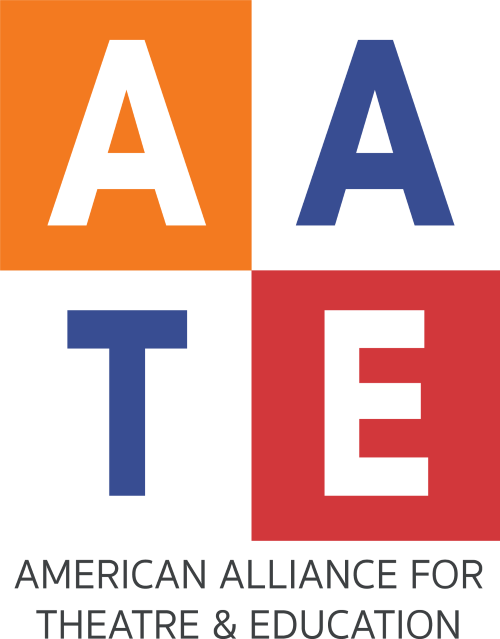- Home
- About AATE
- Membership
- Programs and Events
- Resources
- Networking
- Support AATE
- Online Store
- Contact Us
Session Block 3Saturday, July 25th, 1-2:15pm(EDT)
All of the Session Blocks will be hosted on Zoom Meeting. You will be sent an email, 24 hours prior to the next days events, which will contain all of the log on details for each event. As in a in-person Conference, please feel free to select whichever workshop you would like to attend in the moment. Network: Applied Theatre Sex & Consent on Campus: Devising with Undergrads in "Roleplay" Inspired by the startling results of the 2018 Tulane University Climate Survey on Sexual Misconduct revealing that 41 percent of female-identifying students and 19 percent of male-identifying students reported being sexually assaulted during their time on campus, a team of 15 student performers and New Orleans artists came together to address sexual violence on the University's campus and created "Roleplay", a new theatrical work that explored student experiences with love, sex, power, and consent. Building upon a feature article in American Theatre ("How 'Roleplay' Reflected Tulane's Experiences With Assault" ), reporter/writer Alex Ates leads a panel with the creators of the performance experience designed to drill into the process, performance, challenges, and insights of creating community-based theater about toxicity in academe. Network: Applied Theatre PLAYING WITH DRAGONS: USING ROLE-PLAYING GAMES TO SUPPORT ACADEMIC OBJECTIVES Playing With Dragons: Using Role-Playing Games to Support Academic Objectives explores how table role-playing games can positively impact the attainment of classroom learning objectives. This presentation begins with an exploration of what a table role-playing game is, and compares it to educational theatre techniques, primarily process drama. As a non-digital interactive experience run by a facilitator, table role-playing games share a great deal of commonality with the methodology used to implement process drama. In this case study, I designed a table role-playing game for a high school English class studying Sophocles' Antigone, intended to help a classroom instructor achieve specific, targeted objectives. I describe the revision and modifications that were made to the game after implementing a trial playtest with adult participants, and then discuss how the revised game was then enacted in the high school classroom. I provide a detailed report of the significant interactions that occurred in the classroom setting. The participants were interviewed to share their experience and insights into using the table role-playing game and how it impacted their understanding of the text. We will end this session with a discussion of other ways in which this methodology could be studied. Network: High School Depth and Dimension in Theatre Arts Classes: Launching the College Board's Pre-AP Grades 6-12 Theatre Arts Frameworks The rigor of artistic practice extends beyond the mastery of technical skill and the polish of final performance to include an emphasis on the processes of creative production, building habits of invention and experimentation, reflection and revision, and analysis and interpretation, while also building discipline-specific technical skills. Upon this pedagogical stance, the College Board's Pre-AP Theatre courses offer instructional units rich with opportunities to expand the typical theatre classroom into exciting learning laboratories. Open to all students, the Pre-AP Theatre courses differ from honors tracks of study, for they aim to become the standard grade-level instruction for all students. The consistent high standards embedded into focused units of study build, strengthen, and reinforce students’ content knowledge and draw connections between subject areas in skills of observation, academic conversation, and higher-order questioning. Instructional strategies are oriented around four area of focus: "Analyze and Interpret, "Peer-to-Peer Dialogue, Experimentation, and Reflective Writing." Together, session participants will unpack and actively engage with a sample lesson to explore these focus areas. Additionally, session leaders will inform educators about how to register for the program. Network: College/University/Research "We Have the Receipts! Applying Gender Statistics to Policy Change" Network: K-8 The Wisdom of Play: Theatre Games and Executive Functioning This participatory workshop both analyzes and explores the cognitive foundations of theatre games. The intent of the workshop is twofold. First, to empower teaching artists with a deeper understanding of the cognitive impact of their common practices with an aim to support greater specificity and efficacy with students. Second, to provide K-12 teachers with both the theoretical justification and practical resources to integrate theatre games into general education classrooms. Executive Functioning (EF) is an umbrella term for a collection of foundational cognitive skills. It incorporates the three key domains of Working Memory, Inhibitory Control, and Cognitive Flexibility. Childhood capacity in EF domains is one of the most reliable predictors not only of school readiness, but also of long-term academic achievement and positive life outcomes. Encouragingly, empirical research has clearly established that EF skills are extraordinarily plastic: these skills can be taught and learned in the same way that math or literacy can be taught and learned. As such, programs and curricula that support the development of EF skills offer potentially significant long-term positive effects for students. This workshop combines cognitive and developmental theory with embodied game play to explore the ways that theatre games offer specifically targeted practice of the core domains of EF. Theatre games explicitly engage students through their fun and playfulness, while implicitly providing socially contextualized and embodied practice of the core domains of EF. Workshop leader, Katherine E. Norman, is a teaching artist and EMC actor. She holds a BFA in Acting and an MA in Interdisciplinary Theatre Studies with an emphasis on Theatre for Youth. She is currently a PhD student in the Educational Neuroscience Lab in the Educational Psychology Department at the UW-Madison, where she studies the intersection of theatre and cognitive development. Network: K-8 Crafting Stories that Serve Your Diverse Classroom, Curriculum, and Life!
|
